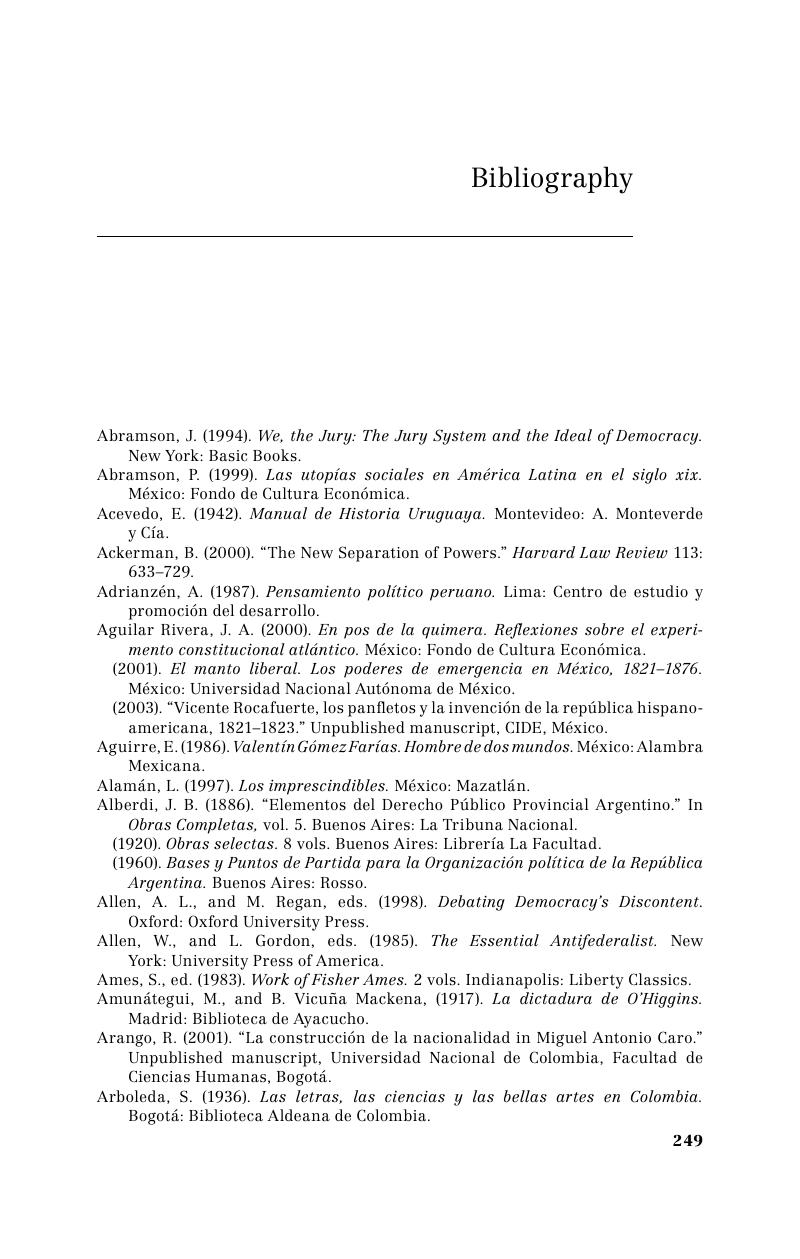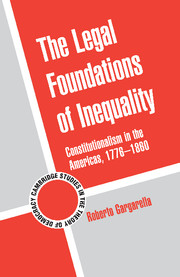Bibliography
Published online by Cambridge University Press: 06 July 2010
Summary

- Type
- Chapter
- Information
- The Legal Foundations of InequalityConstitutionalism in the Americas, 1776–1860, pp. 249 - 266Publisher: Cambridge University PressPrint publication year: 2010

